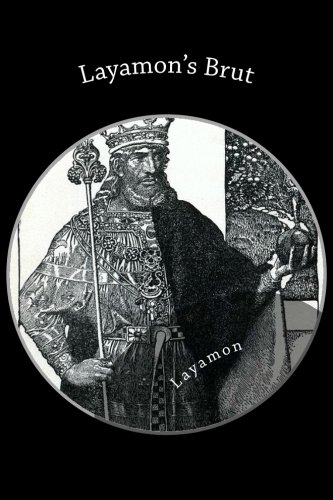Layamon was an English poet of the late 12th century. His poem Brut is one of the chief sources of the matter of Britain in the metrical romances of the Middle Ages. He adapted this poem from the Latin work of Geoffrey of Monmouth. Geoffrey’s work is on the history of England, originally written in Latin. It contains a rich account of the old history and legends of the remote times of Britain. Geoffrey’s work was translated into French, and, of course, into rhyme, by a Norman, Wace. That work is popularly known as Wace’s Brut.
Layamon’s work is based on Wace’s Brut. It is a long poem, written in irregular alliterative verses, with materials, mainly taken from Geoffrey, with additions and alterations here and there. Layamon’s significance is immense in the English literature of the Middle English period. He is instrumental in reviving the interest in native materials for English literature. Although he translated the French rhyming version of Geoffrey into English, he added several things that had not been in the Latin original or the French translation. Those were obtained by the author himself independently, somehow or other, from the Welsh folklore and legends.
Layamon’s work, as already noted, has an essential bearing on the growth of Middle English literature. His addition is particularly of great worth. He introduced some matters relating to King Arthur, and here, the story of Arthur’s passing is especially worth mentioning. Layamon has offered immense materials for the growth of Arthurian literature in subsequent times. Both Thomas Malory and Alfred Lord Tennyson, celebrated names in Arthurian literature, are found to have derived materials from him.
Of course, Layamon’s work is not of a very high order from an artistic standpoint. His verse is not of rich quality, as he had no immediate literary model for his great enterprise to relate history in verses. The pattern before him was, perhaps, the old English alliterative verses and the rhyming French couplets, and he could not handle either of them with much poetical efficiency. As a result, his versification often appears disagreeable and discordant, heavy and prosaic, but his matter compensates for his poetical deficiency, and his treatment of past British history reveals both his scholarship and his creative imagination. The interest that he has created in his treatment of different stories from the remote history makes up for much of his uncomfortable verses and ranks him among the important forerunners of Middle English literature.
Also read: Summary and Analysis of the poem The Dream of the Rood

Leave a Reply